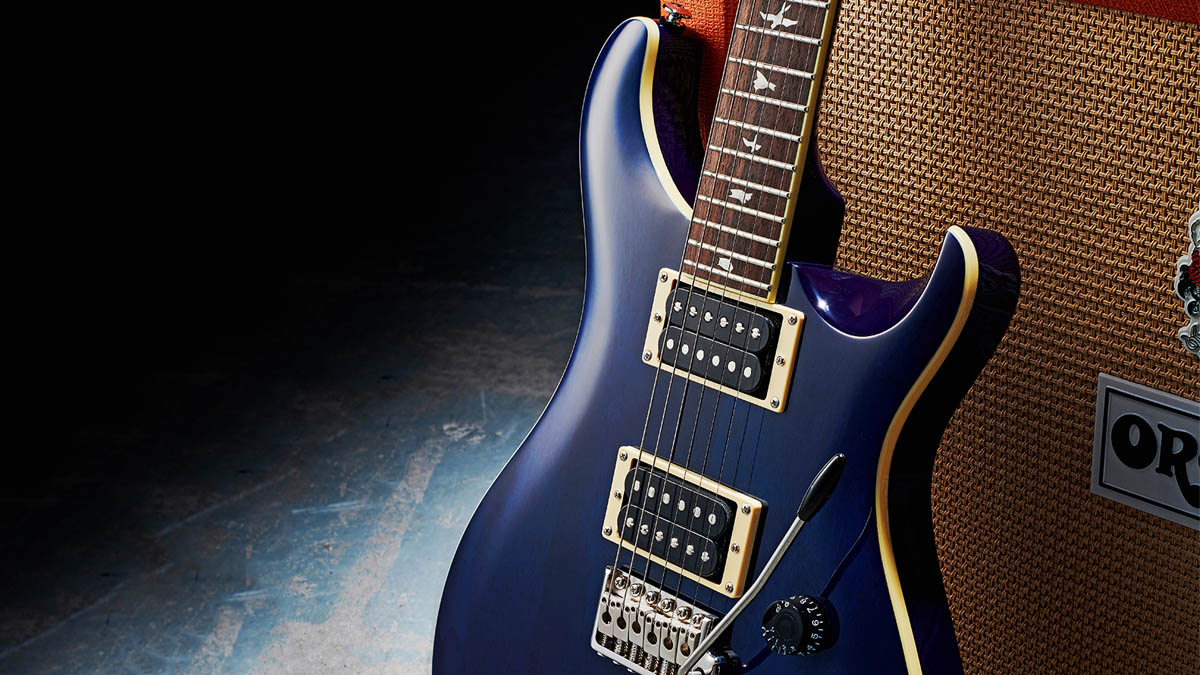Paul Reed Smith says the theory that pickups are all that matter to tone and wood choice is irrelevant is “just not true”
“If the pickup is the only thing that matters, then dead strings don’t matter,” says the PRS supremo

You need not spend long in guitar culture before being confronted by myth and counter myth, of folk wisdom masquerading as science, and vice versa, and by the countervailing winds of opinion obscuring the boundaries between both.
But there are few more contentious subjects than tonewood, and the degree to which the wood that your guitar is made from affects the sound that it makes. Many will tell you that this – particularly on the electric guitar – is bunk. The electric guitar pickups are the brains of the operation, the player’s technique the soul, and the guitar amp has the final say.
Many beg to differ, and may even offer tasting notes for different tonewoods. Mahogany bodies offer warmth, deep lower mids. Alder is balanced. Yadda yadda yadda. The point being is that tonewood matters. It matters whether your guitar is carved from balsa or Honduran mahogany.
Paul Reed Smith, who makes a living from building guitars, high-end electric guitars at that, appeared on the Dipped In Tone YouTube channel to talk all things guitar, but along the way he had a clear answer for anyone who argues that pickups are the only thing that matters to electric guitar; they are talking crap.
“I found an argument in Germany when I was over there that I think stinks,” he said. “If the instrument doesn’t matter, and it is only the pickup, then a concert violinist would go up to a Neumann microphone and the violin would not matter at all. It’s his hands and the microphone. That’s it. That’s all that matters, according to the internet. What a load of crap.”
Referencing the rig that the Dipped In Tone podcast want him to appraise, in which there is an Epiphone arch-top, a Strat and a PRS thinline, he says of course each guitar in the trio is going to sound different, and the wood, the build is key.
I have heard it over and over and over again, that the tonewoods don’t make any difference whatsoever, it’s just not true
“If you grab any guitar behind you, that’s any brand, it is going to make a vowel sound; it is going to make an ‘ooh’ sound, an ‘aww’, or an ‘uhh’, or an ‘ehh’, or an ‘ee’… And you have heard guitars going, ‘Ee! Ee! Ee! Ee!’ A really good guitar is bright on the bass strings and really thick on the high strings, and the pickup picks us up.
Get the MusicRadar Newsletter
Want all the hottest music and gear news, reviews, deals, features and more, direct to your inbox? Sign up here.
“The idea that the pickup is going to ignore the fact that that red guitar in the rig is hollow and has a note that’s coming out of it all the time, and those harmonic are added to every note you play, is nuts. And I have heard it over and over and over again, that the tonewoods don’t make any difference whatsoever, it’s just not true.”

Paul Reed Smith’s guitar-making bona fides hardly need rubber-stamping here. Yes, his brand was built on some of the most audacious guitar designs you can buy, of engineering hardware to maximise any guitar string and the note you’ve played’s potential, but don’t just take his word for it. Smith has observed at first hand the effect of an unsighted taste test. Tonewoods matter.
“I took a couple of violinmakers to my wood supplier once, and they went and knocked on every piece of wood in this entire area,” said Smith. “And they were listening not for the note but [for] how long it rang, and at the end the woodcutter’s jaw dropped. I said, ‘What’s wrong?’ He goes, ‘Look, look what they picked out! They picked out 40 backs [for violins]; they all had the same number…’
“I said, ‘What does that mean?’ He said, ‘They’re all from the same tree, Paul.’ I mean, they had picked out the ones that rang the longest. It was all coming from the same tree. So now, that doesn’t matter? It’s just nuts!”
Asked what he thought about Jim Lill’s video, in which he bench tested guitars for a comparison, Smith says there is more to story. The wood, the strings, the acoustic profile of the instrument, and many other factors play a key role in tone. And in an electric guitar, the pickup is beholden to them all.
“You are talking about this acoustic tone that the guitar makes, and then the pickup is picking that up, and then the pickup has its own parametric equaliser in it, so it is a combination of the acoustic sound of the guitar, how long it rings, what harmonics it’s amplifying, how even it is or not, and then the pickup makes a huge difference,” he explained.
“If the pickup is the only thing that matters, then dead strings don’t matter,” he added. “Are you going to erase the importance of how the guitar rings, and how much sustain it has, and how even it is before the pickups are in it? It just doesn’t make sense to me.”
Jonathan Horsley has been writing about guitars and guitar culture since 2005, playing them since 1990, and regularly contributes to MusicRadar, Total Guitar and Guitar World. He uses Jazz III nylon picks, 10s during the week, 9s at the weekend, and shamefully still struggles with rhythm figure one of Van Halen’s Panama.
“It is ingrained with my artwork, an art piece that I had done years ago called Sunburst”: Serj Tankian and the Gibson Custom Shop team up for limited edition signature Foundations Les Paul Modern
“These guitars travel around the world and they need to be road ready”: Jackson gives Misha Mansoor’s Juggernaut a new lick of paint, an ebony fingerboard and upgrades to stainless steel frets in signature model refresh










